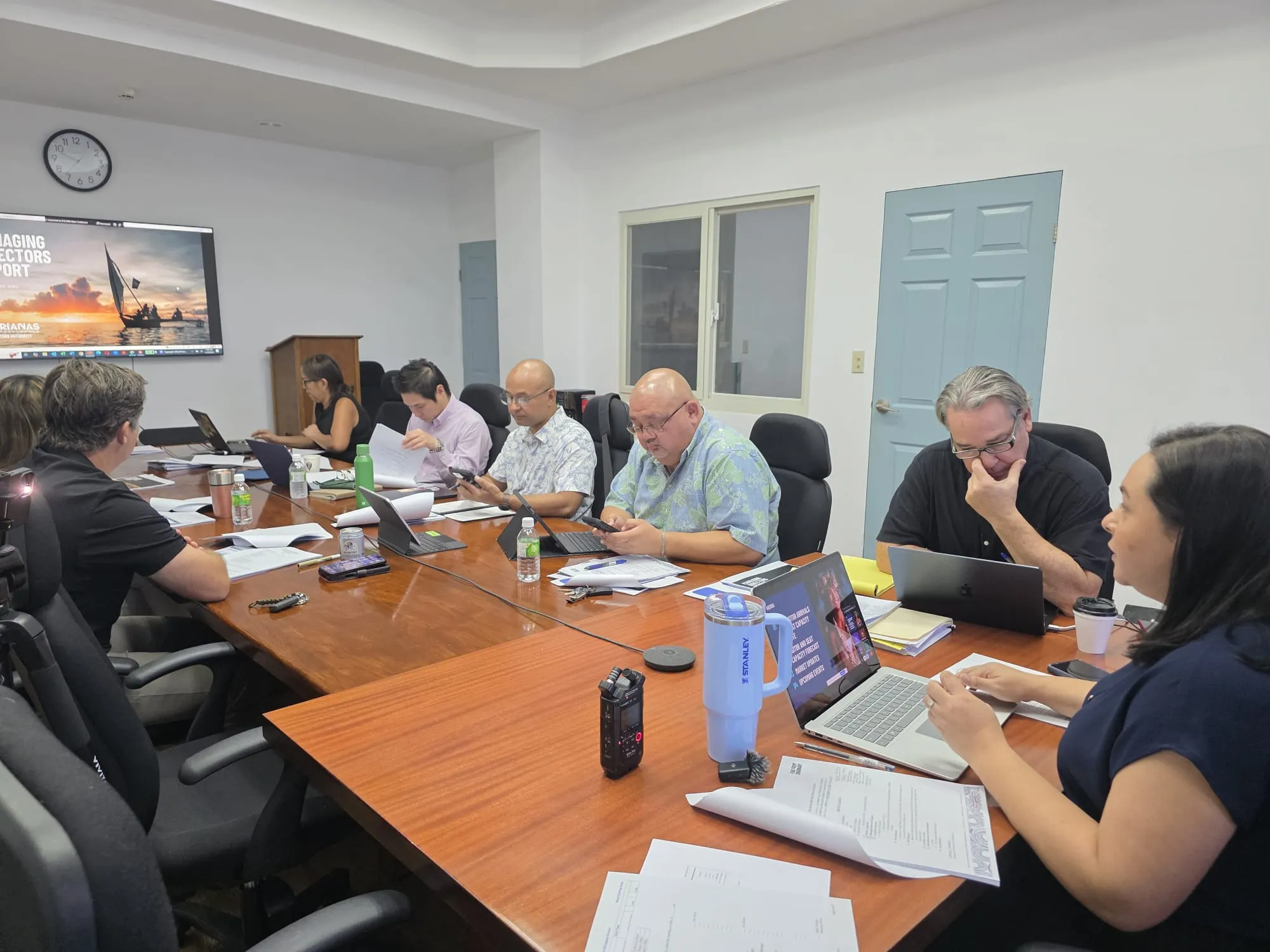Tweedledee
THE NMI Democrats have finally won legislative elections — the last time was in 2007 when a Democrat (now a Republican) topped the House race in Precinct 4. Some say that the Dems’ recent electoral successes mean that the Commonwealth has a two-party system once again. Right?
NMI politics, however, has always been a two-party affair. The majority party governs, the minority party opposes. But some are fixated on the name of the minority party. Apparently, they believe that if the other major party is not the Democratic Party then we’re in a “one-party state.”
The local Democratic Party used to be known as the Popular Party which was the dominant political bloc in the NMI during the Trust Territory era. It was a Democrat who was elected as the first CNMI governor. During his administration, CNMI Senate Republicans introduced a resolution calling for the “recovery of deficit funds” from the governor, his planning and budget affairs officer, and finance director. The resolution also accused the Democratic administration of “gross mismanagement of public funds, financial imprudence and possible violations of the law.” Excessive travels and overtime were major concerns. The personnel management officer, for his part, was found to have authorized “three [pay] raises for himself in a single day, including one for a job that does not exist.” He also “obtained a job as personnel specialist for his brother-in-law, and approved the hiring of another man who went to work for his uncle….”
The fourth CNMI governor was another Democrat. He, too, was accused by his political opponents of “gross mismanagement and misspending of public funds” — and was actually sued over those allegations. But during his administration, the local economy boomed, the government collected more revenue, resulting in more government programs and services, more government hiring, and more government obligations.
The Democrats split in the 1997 general elections and remained fractured in 2001. Its role as the other major party eventually fell into the lap of a Republican faction called the Covenant Party which assumed the House leadership in 2000 after joining forces with House Democrats. Many other prominent Democrats would also join the Covenant Party which soon became the majority party. Meanwhile, many politicians opposed to the governing party ran as independents, and won.
For almost two decades, in other words, the CNMI had more than two competing political factions. The 2018 gubernatorial election, in fact, was the first two-way race since 1993. There were three gubernatorial candidates in 1997; four in 2001; four in 2005; four in 2009; and four in 2014. So much for the “one-party state.”
Through all those years, no matter what they called themselves, there was always a governing party and an opposition party or group. And most of the time, the only difference between them was that one was “In” and the other was “Out.”
Tweedledum
SINCE at least the Trust Territory era, the NMI’s perennial “problem” is that the government’s willingness to spend other people’s money usually exceeds the amount of money it can collect from other people. Hence, the Retirement Fund fiasco — a bipartisan endeavor like most of the other financial crises in Commonwealth history. Who among politicians seeking office would have opposed generous retirement benefits, especially when the economy was growing? Which political party or politicians, once in charge of running the government, opposed hiring more local employees (i.e., voters), providing more public programs and/or services?
Today, who is publicly opposed to pay-raises and/or OT pay for government employees? Who will publicly propose reducing the size of government by shutting down offices and laying off employees? Who is against medical referrals? Homesteads? Scholarships? Food stamps? More funding for PSS? NMC? DPS? The courts? Emergency response?
What about a part-time Legislature? Originally proposed by a Covenant Party House member in 2004, it aims to reduce the legislative budget amount which is basically peanuts compared to the government’s other obligations. Moreover, based on government spending history, any such “savings” usually mean more funding for other government entities.
Of course, the newly elected lawmakers, especially the incoming Democratic-led House, can — and should — prove us wrong.










